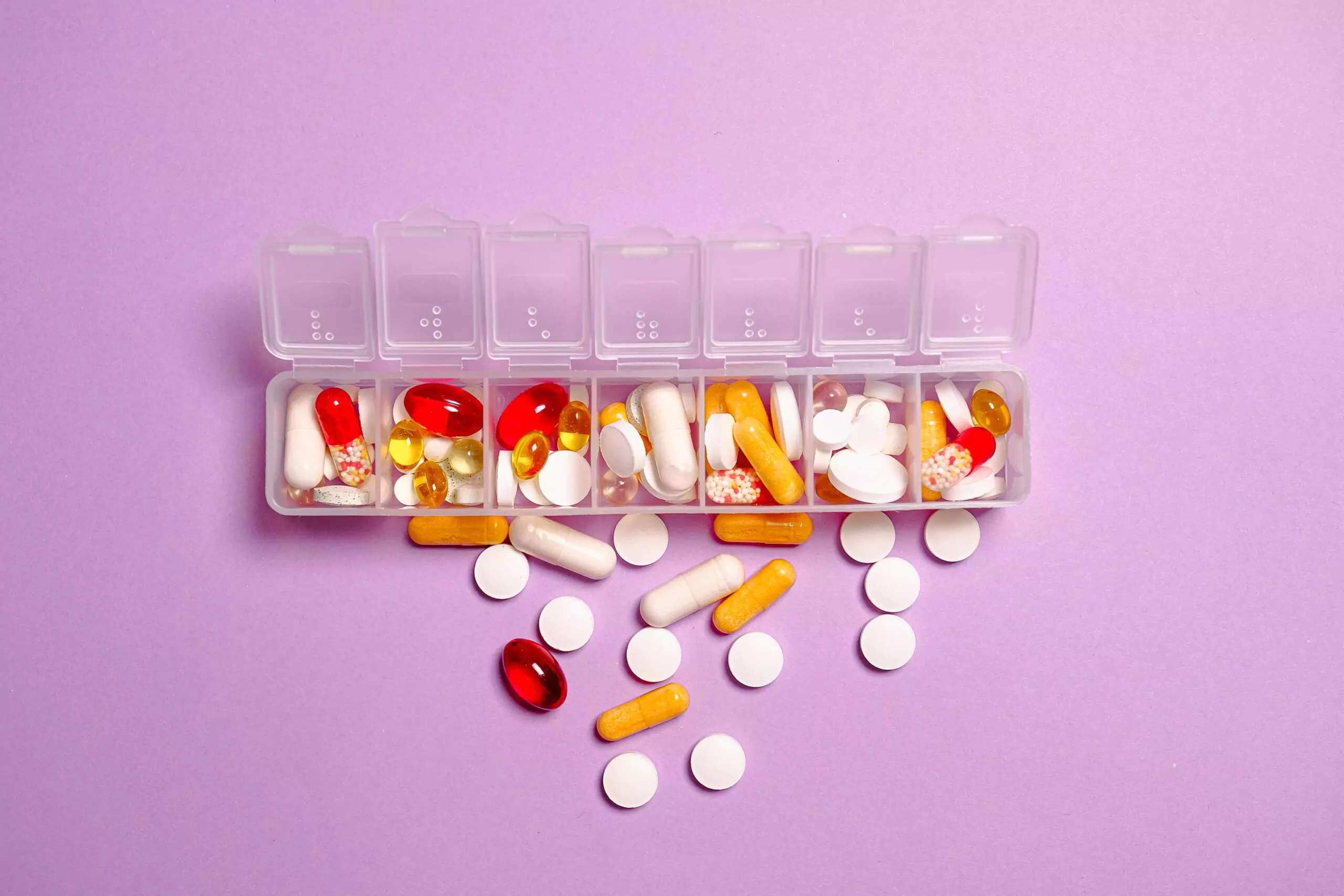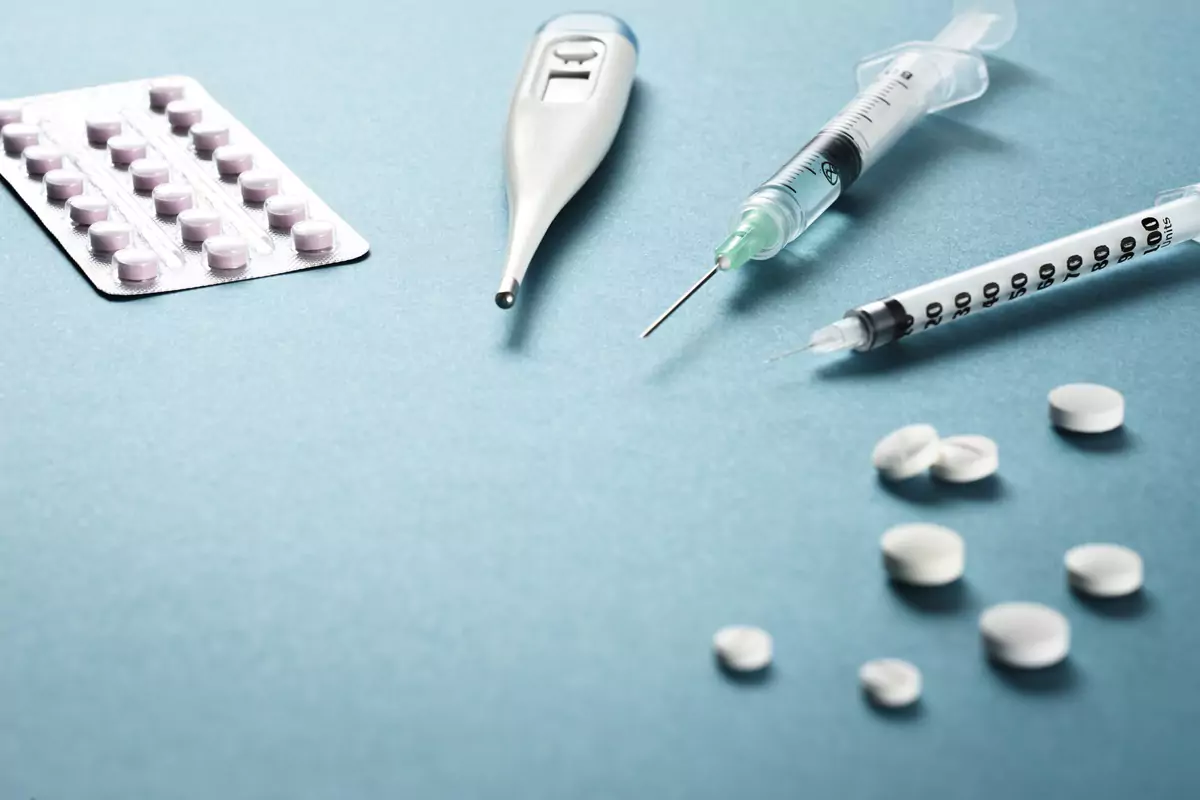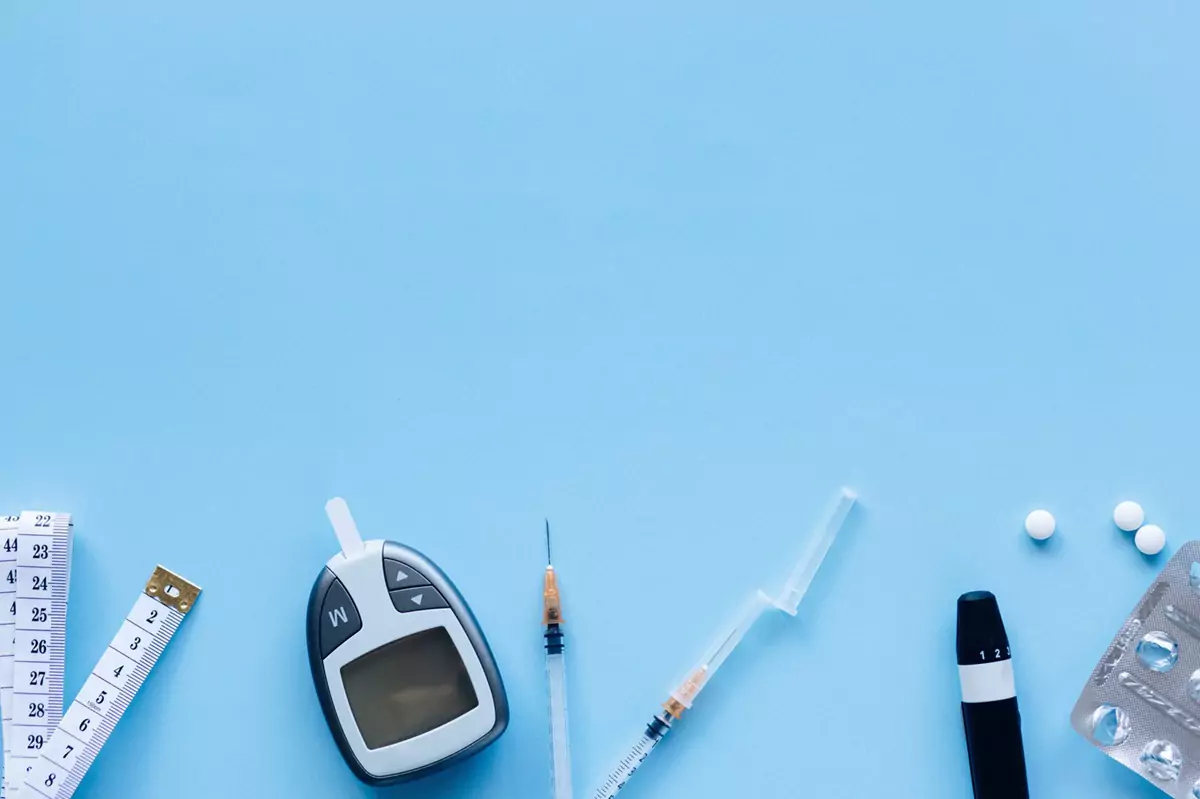






Taking Metformin? 10 Foods to Avoid and 10 to Eat


Table of Contents
- What is Metformin?
- How Does Metformin Work?
- Side Effects of Taking Metformin
- Some Foods That Have Natural Metformin
- 10 Foods you should avoid while taking Metformin
- Alcohol
- Fatty Foods
- Trans fats
- High Sugar Foods
- Too Much Sodium
- Refined and Simple Carbohydrates
- Grapefruit
- Sugary Drinks
- Refined Grains
- Fried foods
- 10 Foods to eat while taking Metformin
- Complex carbs
- Low-carb fruits
- Breakfast meals and snack bars
- Healthy fats
- Non-starchy vegetables
- Lean protein
- Legumes
- Eggs
- Herbs
- Moderate fiber intake
- Other foods
- Conclusion
- About the author:
- References
Maintaining a healthy diet is essential to managing diabetes and taking Metformin, a medication commonly used to treat the condition. Individuals can ensure that their medication works effectively and avoids potential adverse effects by understanding which foods to avoid.
Metformin is a powerful medication that can effectively manage blood sugar levels, but individuals need to be aware of the potential interactions between certain foods and the medication. In this essay, we will discuss the role of diet in managing diabetes and provide a list of foods to avoid while taking Metformin.
What is Metformin?
Metformin is a prescription medication that treats type 2 diabetes. It belongs to a class of drugs known as biguanides, which work by reducing the amount of glucose produced by the liver and helping the body respond better to insulin.
This can help lower blood sugar levels and improve insulin sensitivity. It is typically taken orally as a tablet or liquid and is often used in combination with other medications and lifestyle changes to manage diabetes.
Metformin is generally well-tolerated; the most common side effects are stomach aches and diarrhea. Following your doctor's instructions and regularly monitoring your blood sugar levels while taking this medication is essential.
In addition to its use in diabetes, Metformin has also been studied for its potential use in other conditions such as polycystic ovary syndrome and non-alcoholic fatty liver disease. However, more studies and research are required to determine the safety and effectiveness of Metformin for these conditions.
It is essential to note that Metformin is not a cure for diabetes and will not eliminate the need for lifestyle changes such as maintaining a healthy diet and exercising regularly. It is also not advisable for use in people with type 1 diabetes or those with certain medical conditions such as severe kidney or liver disease.
How Does Metformin Work?
When you eat food, your body breaks down the carbohydrates from the food into glucose, a simple sugar used for energy. The hormone insulin, produced by the pancreas, helps the cells in your body use glucose for energy.
However, in individuals with type 2 diabetes, the body doesn't produce enough insulin, or the body cells don't respond properly to insulin, which can cause your blood sugar levels to rise too high. Metformin works by reducing the levels of glucose produced by the liver and helping the body respond better to insulin.
This can help lower blood sugar levels and improve insulin sensitivity. It is typically taken orally as a tablet or liquid and is often used in combination with other medications and lifestyle changes to manage diabetes. In general, Metformin works by:
- By decreasing the amount of sugar (glucose) that is produced by the liver
- Reducing the amount of sugar that is absorbed from food
- By increasing the sensitivity of cells to insulin (the hormone that helps control blood sugar levels)
There is some evidence that Metformin may also have other benefits, such as:
- Reducing the risk of heart disease
- Reducing the risk of stroke
- Reducing the risk of certain types of cancer
Side Effects of Taking Metformin
Metformin is generally well-tolerated; the most common side effects are stomach upset and diarrhea. However, like all medications, Metformin can cause side effects, and it's essential to be aware of them. The side effects of Metformin medication
An Upset Stomach:
This can include symptoms such as nausea, vomiting, diarrhea, stomach pain, bloating, and loss of appetite. These symptoms typically occur when you start taking the medication and can often be managed by starting with a low dose and gradually increasing it over time. It's also essential to take Metformin with meals to help reduce the risk of stomach upset.
Lactic Acidosis:
This is a rare but potentially life-threatening condition. Lactic acidosis occurs when a buildup of lactic acid is in the blood, which can cause symptoms such as difficulty breathing, stomach pain, muscle pain, and feeling very weak or tired. This condition is more likely to occur in people who have liver or kidney problems or who drink alcohol excessively. Some other potential side effects of Metformin include:
- Skin reactions, such as rash or hives
- Difficulty breathing or swallowing
- face swelling, tongue, lips, or throat swelling
- Chest pain
- Severe dizziness or fainting
- Unusual changes in mood or behavior
- Seizures
If you are experiencing the above unusual symptoms while taking Metformin, it's essential to stop taking the medicine and contact your healthcare provider immediately.
Metformin can interact with certain medications, supplements, and herbal remedies, affecting the way they work or increasing the risk of side effects. Therefore, it's integral to talk to your doctor about any other medications you have been prescribed and to let them know if you start taking any medicines while on Metformin.
Some Foods That Have Natural Metformin
While Metformin is not found naturally in any foods, it is available naturally in the plant Galega officinalis, also known as goat's rue or French lilac. This plant has been used in traditional medicine to treat numerous conditions, including diabetes. It is believed that the active ingredient in goat's rue, guanidine, has similar effects to Metformin in the body.
However, it's important to note that the safety and effectiveness of goat's rue as a treatment for diabetes have not been extensively studied. There is also a need for standardized dosing and preparation guidelines, which makes it challenging to know how much of the plant to use and how to use it safely.
If you are interested in using natural remedies to manage your diabetes, you must talk to your doctor first. They can guide the safety and effectiveness of different remedies and help you create a treatment plan that is right for you.
In addition to goat's rue, other foods can help manage blood sugar levels and improve insulin sensitivity. These include foods that are high in fiber, such as vegetables, whole grains, and fruits. Choosing foods low in sugar and sodium is also essential, as these can negatively impact blood sugar levels and overall health.
10 Foods you should avoid while taking Metformin
When taking Metformin, a medication commonly used to treat type 2 diabetes; it's essential to pay closer attention to your diet. Certain foods can interfere with the effectiveness of the medication or cause unwanted side effects.
It's best to avoid alcohol, high-fat meals, and foods that are high in sugar. You should also avoid consuming large amounts of fluids at once, as this can increase the risk of developing a dangerous condition called lactic acidosis. Here is a list of food to avoid while taking Metformin:
Alcohol
One of the main things to avoid while taking Metformin is alcohol. Although alcohol is generally considered safe, there are a few potential risks associated with consuming alcohol while taking Metformin. Alcohol can increase the risk of developing a dangerous condition called lactic acidosis, which can be life-threatening.
Symptoms of lactic acidosis include difficulty breathing, stomach pain, muscle pain, and feeling very weak or tired. Alcohol can also cause a decrease in blood sugar, which is dangerous for people with diabetes who are taking Metformin. If you have diabetes, it's essential to monitor your blood sugar levels carefully if you consume alcohol.
It will also interfere with the absorption of Metformin. This means that if you drink alcohol while taking Metformin, you may not get the full therapeutic effect of the medication. Because of the potential risks, it's essential to talk to your doctor before drinking alcohol while taking Metformin. They can help you weigh the risks and benefits for a more informed decision about your health.
Fatty Foods
It's also a good idea to avoid high-fat meals while taking Metformin. One common side effect of Metformin is gastrointestinal upset, which can include nausea, vomiting, diarrhea, and abdominal pain. To help minimize GI side effects, it is recommended that people take Metformin to avoid fatty foods.
When taken with fatty foods, Metformin can cause even more gastrointestinal upset, as well as increased flatulence and burping. Fatty foods can also reduce the absorption of Metformin, making it less effective. For people with diabetes, this can lead to dangerously high blood sugar levels.
For people with PCOS, it can cause a flare-up of symptoms. It is best to avoid these issues when taking Metformin to avoid fatty foods. Instead, focus on eating small, frequent meals that are high in fiber and low in fat. This will help minimize side effects and control your blood sugar levels.
Trans fats
Trans fats are prevalent in store-bought baked goods and fast food restaurants. These are inflammatory and may raise the risk of cardiovascular disease. While trans fats have been investigated for their impact on insulin resistance, the results are still uncertain.
High Sugar Foods
Metformin works by helping to control blood sugar levels. However, one of the side effects of Metformin is that it can cause low blood sugar levels. This is why it is essential to avoid high-sugar foods while taking Metformin. High-sugar foods can cause your blood sugar levels to spike.
This can be dangerous if you are taking Metformin. When your blood sugar levels spike, it can cause you to feel dizzy, faint, or have a headache. It is essential to avoid these foods to keep your blood sugar levels under control.
Some of the high-sugar foods that you should avoid include candy, cookies, cake, pie, ice cream, honey, syrup, and fruit juice. You should also avoid processed foods that contain high amounts of sugar. These foods can be found in numerous places, so it is essential to read labels carefully.
Too Much Sodium
Sodium is a mineral found in sea salt or table salt. It can also be found in various processed or canned foods, such as canned soups, frozen meals, and processed meats. When you eat foods high in sodium, your body retains water.
This can lead to a fluid buildup in your body, which can be dangerous for people with diabetes. When you take Metformin, your body eliminates sugar through your urine. This process requires a lot of water. If you eat a high-sodium diet, your body will retain water, and you will urinate more frequently.
This can lead to a decline in the amount of Metformin that your body absorbs, and it can also increase your chances of developing a urinary tract infection. If you are diabetic and are taking Metformin medication, it is essential to eat a healthy diet low in sodium.
Refined and Simple Carbohydrates
One of the side effects of Metformin is that it can cause low blood sugar levels (hypoglycemia). This is more likely to happen if you take Metformin along with other diabetes medications or if you have kidney problems. To help prevent hypoglycemia, it is important to avoid refined and simple carbohydrates when taking Metformin.
Refined and simple carbohydrates are quickly broken down by the body into sugar, which can cause blood sugar levels to spike. And researchers found that simple carbohydrates raise blood sugar levels and increase the risk of T2D. This can be especially problematic if you are already taking other medications that lower blood sugar levels, such as insulin.
Consuming complex carbohydrates, which are slowly broken down by the body, can help to avoid this problem. If you are taking Metformin and experience hypoglycemia, consume something that will raise your blood sugar levels quickly, such as fruit juice, hard candy, or glucose tablets. You should also contact your healthcare provider, as you may need to adjust your dosage of Metformin or other medications.
Grapefruit
In one study, rats were given grapefruit and Metformin. Some rats were administered grapefruit juice and Metformin, whereas others received Metformin alone. Researchers discovered that mice were given grapefruit juice and Metformin produced more lactic acid than those given Metformin alone.
Additionally, they might put on more weight. Researchers hypothesized that grapefruit juice accelerated metformin buildup in the liver. This subsequently led to a rise in lactic acid production. Researchers came to the conclusion that people taking Metformin who consume grapefruit juice may be at an increased risk of developing lactic acidosis.
Sugary Drinks
Sugary drinks, such as soda, fruit juice, and sports drinks, should be avoided when taking Metformin for PCOS. These types of beverages often contain high levels of added sugar, which can cause blood sugar levels to spike and may lead to weight gain. This can be detrimental for people with PCOS, as excess weight can worsen the condition's symptoms.
Refined Grains
Refined grains, such as white bread and rice, should also be avoided when taking Metformin for PCOS. These foods are often heavily processed and lack the fiber and nutrients found in whole grains. As a result, they can cause blood sugar levels to rise sharply and may lead to weight gain. Choosing whole grain options instead can provide more sustained energy and help regulate blood sugar levels.
Fried foods
Fried foods should be avoided when taking Metformin for PCOS. These foods are often high in unhealthy fats, which can contribute to weight gain and worsen the symptoms of PCOS. Additionally, the high heat used to fry foods can cause the formation of advanced glycation end products (AGEs), which can damage cells and lead to inflammation. Choosing healthier cooking methods, such as baking or grilling, can help reduce the intake of unhealthy fats and AGEs.
10 Foods to eat while taking Metformin
You are probably wondering, should I take Metformin with food? When taking Metformin for PCOS, a healthy diet must be followed to support blood sugar control and weight management. Incorporating lean protein, moderate amounts of fiber, and healthy fats can benefit individuals with PCOS who are taking Metformin. Here are healthy foods you can include in your diet when taking Metformin:
Complex carbs
When it comes to managing diabetes, there are a lot of different options and variables to consider. With so many other medications and treatments available, deciding what's best for you can be tough. If you're currently taking Metformin, you may wonder if you should also take complex carbs. Here's what you need to know.
Complex carbs are a critical part of a healthy diet for people with diabetes. They assist in regulating blood sugar levels and offer lasting energy throughout the day. When taken in conjunction with Metformin, complex carbs can help to further stabilize blood sugar levels and minimize the risk of spikes.
There are a few different ways to get complex carbs into your diet. One option is to eat foods that are naturally high in complex carbs, such as legumes, whole grains, and vegetables. You can also take a complex carb supplement, which is available in powder or pill form.
Low-carb fruits
While all fruits have essential nutrients, consuming fruits with fewer carbohydrates is better for glucose control. For instance, berries are low in carbohydrates and high in fiber.
Breakfast meals and snack bars
Granola bars and Atkins bars can be taken for breakfast. Atkins bar contains the ideal ratio of protein, fiber, and carbohydrates. Graham crackers and whole wheat bread with peanut butter are also available as snacks. So these can be taken with Metformin.
Healthy fats
While Metformin is an effective medication, it can cause gastrointestinal side effects like nausea, vomiting, bloating, and diarrhea. Taking Metformin with food can help to reduce these side effects. Healthy fats can also help to reduce the side effects of Metformin. Fat has been shown to help slow the emptying of the stomach, which can help reduce Metformin's gastrointestinal side effects.
Additionally, healthy fats can help to improve the efficacy of Metformin. One study showed that adding fat to a metformin-based meal helped increase the amount of Metformin absorbed by the body. So, if you are taking Metformin, include healthy fats in your diet. Healthy fats can help reduce Metformin's side effects and improve the medication's efficacy.
Non-starchy vegetables
Non-starchy vegetables are a good source of fiber, vitamins, and minerals. Fiber can help regulate blood sugar levels, and the vitamins and minerals found in non-starchy vegetables can help boost metabolism and protect against some of the side effects of Metformin.
Therefore, adding non-starchy vegetables to your diet may help improve blood sugar control, promote weight loss, and minimize the risk of some complications associated with type 2 diabetes. There are many types of non-starchy vegetables, so it's easy to find ones you enjoy. Some of the most popular non-starchy vegetables include broccoli, carrots, cabbage, Brussels sprouts, and green beans.
Lean protein
Lean protein can provide several benefits when taking Metformin for PCOS. First, protein can help regulate blood sugar levels by slowing the absorption of carbohydrates. This can help prevent blood sugar spikes and crashes, benefiting people with PCOS who are taking Metformin.
Proteins can also help promote satiety or feelings of fullness, which can help prevent overeating and support weight loss. This can be important for people with PCOS, as excess weight can worsen the condition's symptoms. Finally, lean protein sources, such as chicken, fish, and tofu, are low in saturated fat and calories, which can help prevent weight gain and improve overall health.
Legumes
Legumes, beans, peas, and lentils are among the most varied and nutritious foods known. Low in fat and rich in fiber, folate, potassium, iron, and magnesium, legumes are often low in fat. As a result, beans and other legumes are a healthier alternative to meat, which is higher in cholesterol and fat and can be taken with Metformin.
Eggs
Eggs are a protein-rich food that helps to manage blood sugar levels in people with diabetes. These can be taken with Metformin.
Herbs
Herbs are another of the greatest foods you can take with Metformin. Garlic, bilberry, and fenugreek are among the most effective herbs for lowering cholesterol levels. Garlic reduces cholesterol levels and the chance of developing heart disease. Equal amounts of bilberry and fenugreek can be consumed. However, it should be taken before meals.
Moderate fiber intake
Fiber can help promote satiety or feelings of fullness, which can help prevent overeating and support weight loss. This can be important for people with PCOS, as excess weight can worsen symptoms. In addition, high-fiber foods, such as vegetables, and whole grains, are typically low in calories and can help prevent weight gain and improve overall health.
It is important to note, however, that increasing fiber intake too quickly can lead to digestive discomfort, so it is recommended to increase fiber intake gradually.
Other foods
Additionally, you can consume broccoli, winter squash, collard greens, dried prunes, egg whites, and cinnamon while on Metformin.
Conclusion
When taking Metformin for PCOS, it is important to avoid sugary drinks, foods with added sugar, refined grains, and fried foods. These types of foods can cause blood sugar levels to spike and may lead to weight gain, which can worsen the symptoms of PCOS. People with PCOS can effectively manage their condition and improve their overall health by choosing healthier options and following a well-balanced diet.
By incorporating lean protein and moderate amounts of fiber into their diet, people with PCOS can help regulate blood sugar levels, promote satiety, and support weight loss. By making these dietary changes, individuals with PCOS can take control of their health and improve their quality of life.
About the author:

Fix insulin resistance with diet and supplements
Who is Dr. Ergin? Dr. Ahmet Ergin is an endocrinologist interested in and passionate about diabetes care. Dr. Ergin earned his medical degree with honors at Marmara University School of Medicine in Istanbul, Turkey.
Then, he completed his internal medicine residency and endocrinology fellowship at Cleveland Clinic in Cleveland, Ohio. He is a board-certified Internal Medicine and Endocrinology, diabetes, and metabolism physician. He is also a certified diabetes education specialist.
Disclaimer: Any information on diseases and treatments on this website is for general guidance only and must never be a substitute for the advice your doctor or other qualified healthcare professional provides. Always seek the advice of your physician or other qualified healthcare professional with questions you may have regarding your medical condition.
References
- https://go.drugbank.com/drugs/DB00331
- https://www.ncbi.nlm.nih.gov/pmc/articles/PMC9331742/
- https://www.ncbi.nlm.nih.gov/books/NBK548726/
- https://www.mayoclinic.org/diseases-conditions/type-2-diabetes/symptoms-causes/syc-20351193#:~:text=Type%202%20diabetes%20is%20primarily,to%20manage%20blood%20sugar%20levels.
- https://diatribe.org/everything-you-always-wanted-know-about-metformin-were-afraid-ask#:~:text=How%20does%20metformin%20work%3F,the%20body%27s%20sensitivity%20to%20insulin.
- https://www.nhs.uk/medicines/metformin/side-effects-of-metformin/
- https://medicalguidelines.msf.org/en/viewport/TUB/english/Lactic-acidosis#:~:text=Lactic%20acidosis%20is%20a%20rare,cramps%20and%20increased%20respiratory%20rate.
- https://www.sciencedirect.com/topics/medicine-and-dentistry/galega-officinalis
- https://www.drugs.com/npp/goat-s-rue.html#:~:text=Use-,Goat%27s%20rue%20and%20its%20derivatives%20have%20been%20used%20in%20the,effects%20to%20increase%20milk%20production.
- https://www.medicalnewstoday.com/articles/317311
- https://pubmed.ncbi.nlm.nih.gov/20094639/
- https://pubmed.ncbi.nlm.nih.gov/15297079/
- https://pubmed.ncbi.nlm.nih.gov/18039988/
Written By Dr. Ahmet Ergin
456 total articles
Meet Dr. Ahmet Ergin, a highly skilled and dedicated endocrinologist with a passion for diabetes care. Dr. Ergin earned his medical degree with honors from Marmara University in Istanbul. He completed internal medicine residency and endocrinology fellowship at Cleveland Clinic. Dr. Ergin is board-certified in Internal Medicine, Endocrinology, Diabetes, and Metabolism due to his vast medical expertise. He's a certified diabetes educator, author of “The Ultimate Diabetes Book,” and founder of “the SugarMD YouTube channel.” Dr. Ergin offers exceptional diabetes care to his patients in Port Saint Lucie, FL, helping them manage effectively. For a closer look into his insights and experiences, connect with Dr. Ahmet Ergin on LinkedIn, Instagram, and YouTube.”
Disclaimer: These statements have not been evaluated by the Food and Drug Administration. Information on this website isn't intended to treat, cure or prevent any disease. Discuss with your doctor and do not self-treat.
Products















